Tenors
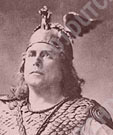 |
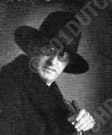 |
 |
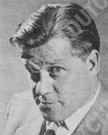 |
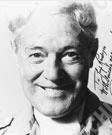 |
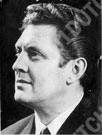 |
Of all tenor-voices, which have been preserved on record, Jacques Urlus' was the most versatile one. He was a brilliant belcanto-singer and had a captivating intensity in heroic Wagner roles; at the same time he could be a Mozart-singer of lyric intimacy and was able to perfectly master the coloraturas of Rossini and Bellini. In 1921 Louis van Tulder left the opera stage. He had come to the opinion that his high, lyric voice wasn't suitable for singing opera. Moreover he didn't possess a great dramatic talent. " I could sing, but I could not act", he later said. "Special in love scenes I was nothing, That kind of work I couldn't do when thousands of eyes were looking to me". From those days on, Van Tulder became a professional concert singer. Henk van Noort became the first tenor of the opera of Düsseldorf from 1933 until 1935. After expiration of his contract he joined in guest appearances and he appeared in 1937 in Salzburg during the Festspiele, where he performed under the baton of Toscanini the role of Walther von Stolzing in Wagners Meistersinger. He also made those days a great tour through America and Canada together with Hilde Konetzi, Marta Krasva and Joël Berglund and returning from this, he sang as guest in Vienna, Dresden, Munich, Paris, Brussels and Berlin in which city he joined for six years the Staats - and Städtische Oper.
Hans Kaart obtained after 1958 great success in the London Covent Garden, especially as Calaf in Puccini's Turandot, but also as Radames in Aïda and as Don José in Carmen. From 1960 on he joined the Deutschen Oper am Rhein Düsseldorf-Duisburg, where he was equal success full. In 1962 Kaart sang at the opera of Chicago the role Samson in Saint-Saens' Samson et Dalila. The role of Dalila in this performance was sung by the Belgian mezzo-soprano Rita Gorr. John van Kesteren went - after studying with Nadia Boulanger in Paris and Vera Schwarz in Salzburg - to Berlin where he joined the KomischeOper in 1954 and the StadtischeOper in 1956. In 1959 he moved to Munich at the invitation of both the National Theatre and the Theater am Gartnerplaz, where he remained for seventeen years. As a lyric tenor with a remarkable range in the upper register he specialised in roles that are generally difficult to cast, in both the 18th and 19th-century repertoire (greatest roles: Rameau's Platée, Rossini's Le Comte Ory and Chapelou in Adam's Le Postillon de Longjumeau, and suchlike). Anton de Ridder joined after his study in 1956 the Opera of Karlsruhe. There he stayed for a period of forty years, until 1996. His voice developed meanwhile to a remarkable fine lyric tenor. For a conductor as Böhm he even was his first choice! Besides at the 'Oper von Karlsruhe' he sang as guest many times at other opera houses. a.o. at the opera's of Munich - during more as 25 years -, of Duisburg, of Leipzig, of Hamburg, of Berlin and of Vienna.
Urlus, Jacques - (1867-1935)
Josef Tijssen - (1871-1823)
Jan Steinmetz - (1890-1973)
Tulder, Louis van - (1892 - 1969)
Vroons, Frans - (1911-1983)
Le Fevre, Han - (1912-2008)
Scheffer, Chris - (1915-1985)
Brand, Tom - (1917-1970)
Zalm, Johan van der - (1919-1995)
Kaart, Hans - (1920-1963)
Kesteren, John van - (1921-2008)
Jan Handerson - (1923-1990)
Blanken, Arjan - (1924-2009)
Woerkom, Chris van - (1924-2008)
de Ridder, Anton - (1929-2006)
Van der Sluys, Willem - (1931-??)
Trommelen, Anton - (1933–??)
Bert van t'Hoff (1930s? - ??)
Caron, Willy - (1934-2010)
Geest, Simon van der - (1935-2001)
Limpt, Adriaan van - (1935-1997)
Goedhart, Wouter - 1941
Delamboye, Hubert - 1945
Meens, Hein - (1949-2012)
Van Aken, Frank - 1961
Reijans, Marcel - 1964
Buwalda, Sytse - 1966
Mark Omvlee - 1977
Erik Slik - 1982




